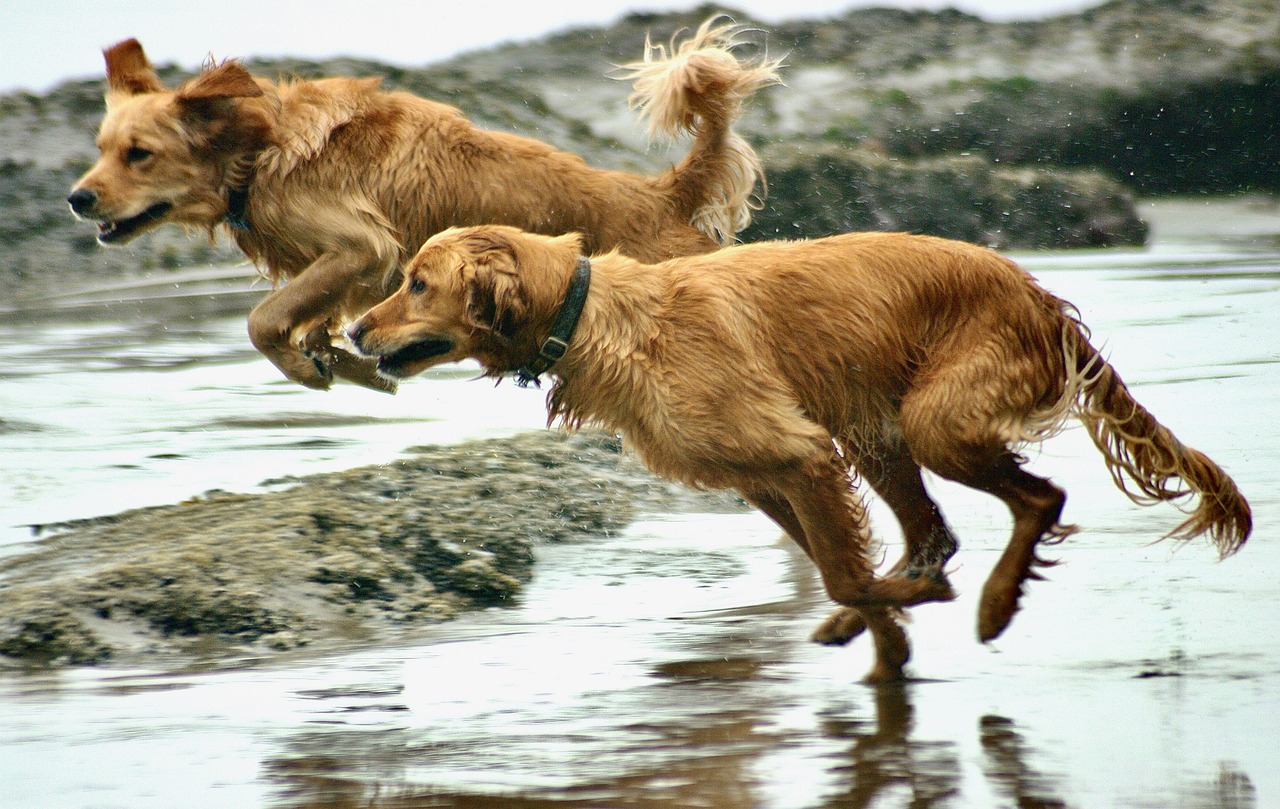If you’re a Golden Retriever owner or planning to welcome one into your family, understanding their exercise needs is crucial for their health and happiness. These beloved dogs are known for their boundless energy and playful nature, but exactly how much exercise does a Golden Retriever need to thrive?
Why do Golden Retrievers Need Exercises?
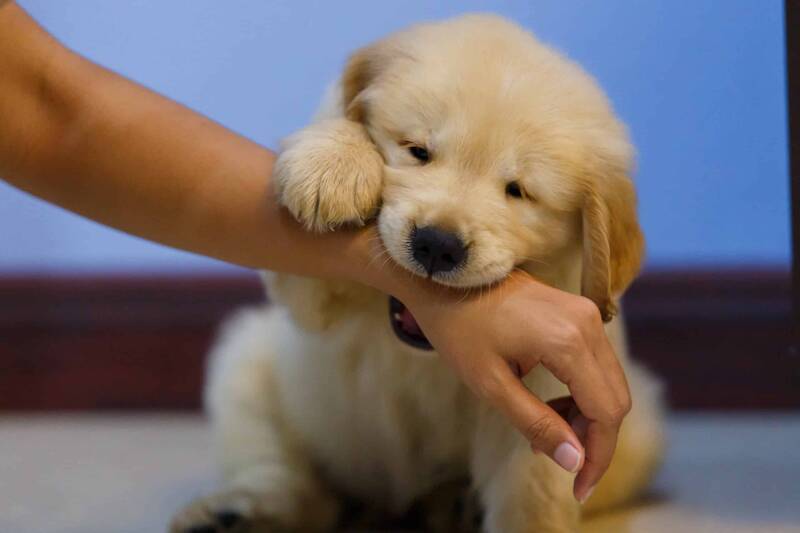
Since Golden Retrievers are so fun-loving and active, you might wonder why they even need exercise. Well, like any dog breed, our Goldies do benefit from exercise, and here are the reasons:
- Exercise keeps them in shape: Together with an appropriate diet, exercising is the best way to prevent excess pounds for your dogs. This is especially true for Golden Retrievers whose genetic predisposition is prone to obesity.
- Exercise keeps them happy: Do you know that a simple walk daily can go a long way in protecting your beloved Goldie’s digestive and circulatory system? What’s more, it also promotes healthy bones.
- Exercise prevents behavioral problems: Exercise helps your pet avoid boredom. This is particularly true for naturally active Golden Retrievers – if you leave them alone in the yard or house and forget to take them out for a walk, frustration creeps in. This is when problematic behaviors, such as hewing furniture, digging holes and non-stop barking begins.
- Exercise makes your pet happier: When your Goldie loses a companion, or when their routine changes due to environmental factors, depression might strike. Getting outside and exercising is the best way to help them come out of their melancholy. Taking strolls, in particular, works wonderfully in lifting your dog’s mood. While the exercise is great by itself, it’s the act of exploring various smells and being with you that truly makes their tail wag.
So, How Much Exercise Does a Golden Retriever Need?
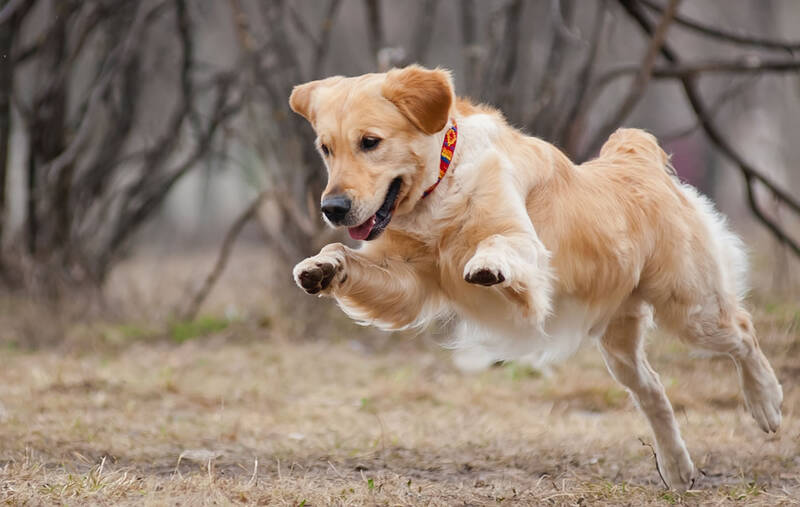
According to veterinarians, a healthy Golden Retriever typically needs 1-2 hours of exercise daily. However, this is just a general guideline, as several key factors influence how much exercise your Golden actually needs. Let’s explore these factors in detail to help you determine the right amount of exercise for your furry friend
Age and Life Stage
Puppies under one year need careful exercise management. Follow the five-minute rule: multiply their age in months by five to determine the exercise duration per session, twice daily. For example, a four-month-old puppy should exercise for 20 minutes per session.
Adult Goldens between 2-7 years have the highest energy levels and require the full 1-2 hours of daily exercise. However, this should be split into multiple sessions to prevent exhaustion.
Senior Goldens (8+ years) typically need 30-60 minutes of gentle exercise daily, with more emphasis on mental stimulation and less on high-impact activities.
Seasonal Considerations
Summer months require early morning or late evening exercise to avoid heat exhaustion. Reduce exercise intensity and duration on hot days, and incorporate more water activities.
Winter exercise can maintain the usual duration, but you’ll need to watch for signs of cold stress, especially in older dogs or those with joint issues. Indoor activities become more important during extreme weather.
Health Status
Dogs with joint issues like hip dysplasia need low-impact exercises such as swimming or short walks on soft surfaces. Overweight Goldens should start with shorter, more frequent sessions until they reach a healthier weight.
Healthy adults with no underlying conditions can handle more vigorous activities, including running, hiking, and agility training.
Best Types of Exercise for Golden Retrievers
Swimming
Golden Retrievers are natural swimmers, making this a perfect low-impact exercise. Swimming provides full-body conditioning while being gentle on joints. Start with short sessions in calm water and always supervise water activities.
Walking and Hiking
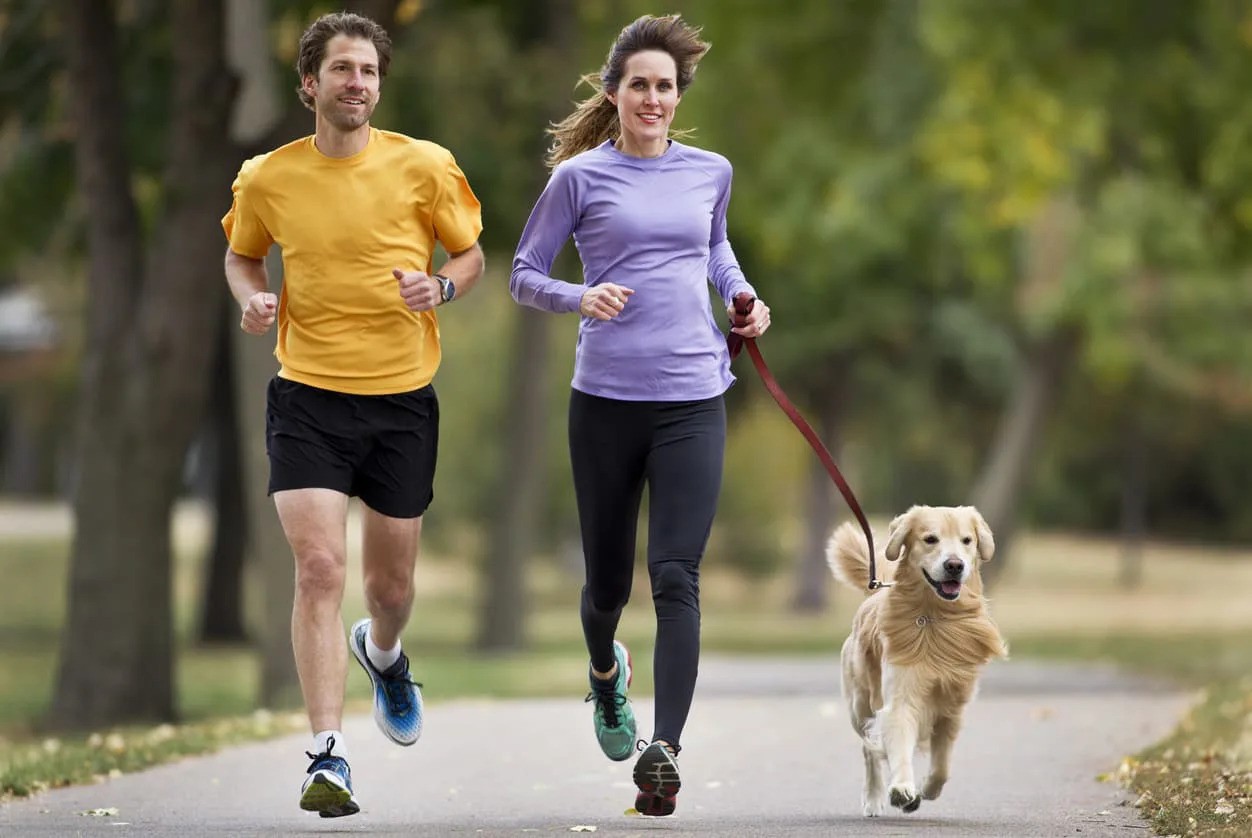
Daily walks are essential for physical exercise and mental stimulation. Mix up your routes between urban walks and nature trails. Allow time for sniffing and exploration, which provides crucial mental enrichment.
Fetch and Retrieval Games
These games tap into your Golden’s natural instincts. Use various toys like balls, frisbees, or floating toys to keep things interesting. Keep sessions to 15-20 minutes to prevent overexertion.
Agility Training
Setting up simple obstacle courses helps improve coordination and provides both physical and mental challenges. Use common items to create jumps, tunnels, and weaving paths.
Social Play
Organized playdates with other dogs provide excellent exercise through wrestling and chase games. Always supervise these interactions and choose playmates with compatible energy levels.
Read more >> Training Golden Retrievers
Signs Your Golden Retriever Needs Exercise Adjustments
Understanding your dog’s exercise needs isn’t always straightforward. Dogs can’t tell us directly when they need more or less activity, but they communicate through various behavioral and physical signs. Here’s what to watch for and how to interpret these signals.
Signs of Needing More Exercise
- Destructive Behavior: Chewing furniture or digging holes in the yard indicates pent-up energy. This often occurs when Goldens don’t have proper outlets for their natural retrieving and exploring instincts.
- Excessive Barking: An under-exercised Golden may bark more frequently at minor disturbances. This behavior stems from built-up energy seeking release through vocal expression.
- Restlessness: Pacing, inability to settle, or constant following you around suggests your dog needs more physical activity. This restlessness often intensifies in the evening hours.
- Weight Gain: Unexplained weight gain, despite normal feeding, can signal Golden Retriever health issues. In some cases, though, it only indicates insufficient exercise. Regular weigh-ins help monitor this trend.
Signs of Needing Less Exercise
- Excessive Panting: If your Golden pants heavily long after exercise has ended, they might be getting too much activity. This is especially important to monitor in older dogs or during warm weather.
- Reluctance to Move: When a typically energetic dog starts refusing walks or play sessions, they might need reduced exercise. This could also indicate the need for a vet check.
- Lethargy After Activity: While some tiredness is normal, extreme fatigue that lasts hours after exercise suggests the activity level might be too intense.
Suggested Exercise Schedule
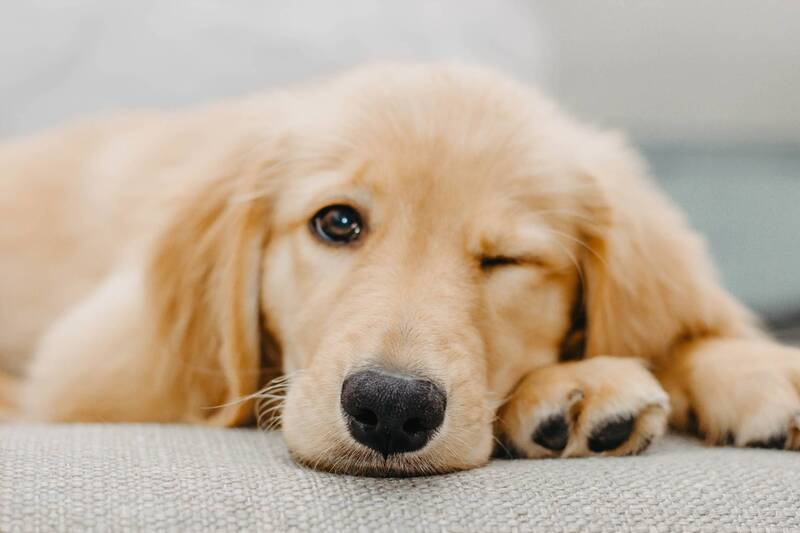
After consulting with veterinarians and professional dog trainers, we’ve developed an ideal exercise schedule for healthy adult Golden Retrievers. This schedule works best for dogs with no underlying health conditions and assumes moderate weather conditions. Remember to adjust the intensity and duration based on the factors we discussed earlier.
Morning (6-8 AM)
- 30-minute brisk walk or light jog
- 15 minutes of fetch or swimming
- Short training session during activity
Afternoon (2-4 PM)
- 20-minute leisurely walk with sniffing time
- Interactive puzzle games or nose work
- Free play in a fenced yard
Evening (7-8 PM)
- 30-minute walk
- Gentle play session
- Cool-down period before bedtime
Adjust this schedule if your Golden shows any signs of over-exertion or if they’re dealing with age-related issues, health concerns, or extreme weather conditions. For working pet parents, you might need to combine the afternoon session with the evening one, making it longer and more engaging.
Final Thoughts
Finding the right exercise balance for your Golden Retriever might take some trial and error. Pay attention to their individual needs and responses to different activities. Remember that mental stimulation through training and puzzle games counts as exercise too. When in doubt, consult with your veterinarian to create a personalized exercise plan that considers your dog’s specific health status, age, and living situation.

As a professional writer who specializes in canine care, I have spent a significant amount of time researching and writing about Golden Retrievers. While I do not own a Golden Retriever, my considerable research and collaboration with doctors, breeders, and Golden Retriever experts has provided me with a lot of information about this incredible breed. My writing covers a wide range of topics, from food and health concerns to behavior and training, to assist owners in raising well-rounded, healthy golden retrievers. Through this website, I wish to share my knowledge and positively touch the lives of both dogs and their humans.

